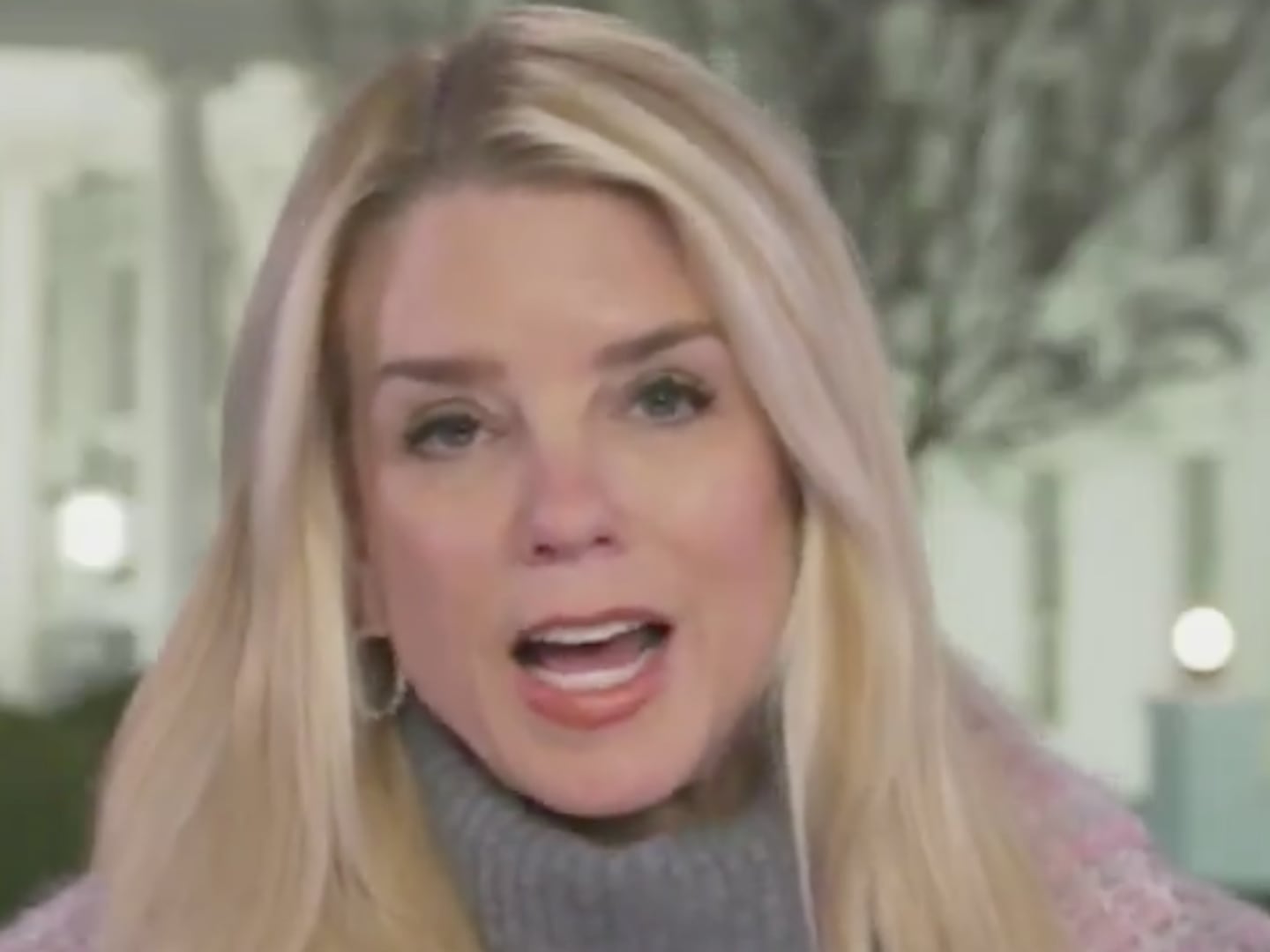LONDON—Vladimir Putin has dragged the Trump administration into his campaign to silence critic and former investment-fund manager Bill Browder, at least for the moment.
U.S. Customs and Border Protection agency officials were scrambling Monday to explain whether and why Browder’s permission to enter the United States had been revoked after the government of Russian President Vladimir Putin issued an Interpol alert called a “diffusion” requesting his arrest.
The former U.S. ambassador to Russia, Michael McFaul, called on President Donald Trump and the State Department to deal with this “outrageous” issue immediately. “Fix this now. Now. Do not join Putin's campaign against @BillBrowder,” McFaul urged on Twitter.
Amid potentially embarrassing claims about whether Interpol and the U.S. government had been duped by Russian officials, spokespersons at both agencies refused repeated requests to explain the situation.
President Trump’s inner circle has previously been dragged into Russia’s battle against Browder, a British businessman who was born in the Chicago area but had given up his U.S. citizenship 20 years ago.
Browder, once a major investor in Russia, is at the center of controversies—and the imposition of sanctions—that infuriate Putin.
Browder’s lawyer and auditor, Sergei Magnitsky, exposed a $230 million fraud in 2007 that implicated the Russian state and law-enforcement officials. Magnitsky was then jailed, tortured, and eventually died in custody for lack of medical care. Browder took the Magnitsky affair to the U.S. Congress, which was convinced by the evidence exposing the utterly ruthless corruption of Russian President Vladimir Putin’s regime.
The so-called Magnitsky Act, signed into law by President Barack Obama in 2012, put tough sanctions on Putin’s cronies—so tough that the Russian president tried to move heaven and earth to get it thrown out. Magnitsky was put on trial after he’d already died; Putin placed a ban on the adoption of Russian orphans by American parents; and, according to U.S. intelligence services, Putin ordered interference in the American presidential elections in part to try to get rid of the Magnitsky Act.
The fraud and subsequent coverup returned to the headlines in the U.S. this year when it emerged that senior Trump campaign officials had met Russian operatives at Trump Tower in June 2016 and discussed the Magnitsky Act.
Donald Trump Jr. had been offered the prospect of information that could harm Hillary Clinton’s campaign as an alleged inducement to take the meeting. The initial effort by the Trump administration to obscure the nature of the discussion suggested it was about adoptions—Putin’s response to the Magnitsky Act.
The latest apparent effort to curtail Browder’s campaign via Interpol and, through it, the U.S. visa waver system for British citizens, came after Putin’s furious response to Canada passing its own Magnitsky sanctions against Russian officials last Thursday.
Worried about the domino effect of these laws restricting the movements and wealth of some of his most senior colleagues, Putin slammed the Canadians for following the U.S. “The issue is simply used for fanning anew anti-Russian hysteria," Putin said, according to a translation by state news agency TASS. “It has a plainly criminal background—cheating and theft.”
In retaliation, the Kremlin has redoubled efforts to stop Browder. After multiple attempts to secure an Interpol Red Notice over several years, Browder believes the Kremlin struck on the idea of using the informal “diffusion” mechanism, which can be triggered directly by any member nation instead of asking Interpol to formally approve a Red Notice, which the organization has refused to do.
Legal justice campaigners said Interpol had long been open to abuse. “That Interpol is misused by some countries is not a revelation,” Bruno Min, from Fair Trials, told The Daily Beast. “We’ve seen a number of cases in the last few weeks alone that have been a real cause for concern.”
Browder said he became aware of Moscow’s intervention when he received an email explaining that his membership in the U.S. fast-track “Global Entry” program had been canceled. He was then advised that his ESTA (Electronic System for Travel Authorization) visa waiver had been revoked, preventing him from entering the U.S.
A State Department official referred queries about Browder’s ESTA status to Customs and Border Protection, which has not responded to requests for comment.
The Interpol diffusion may mean he would be arrested if he tried to enter another country. He told The Daily Beast that he had been due in another European country this week to discuss the Magnitsky case.
“It affects me profoundly because I can't travel until the Interpol notice is lifted, which means that my [Magnitsky-related] campaign is on hold while this is outstanding,” he said. “The global spread of Magnitsky acts in different countries has put Putin in a state of hysterical apoplexy—and he’s now behaving irrationally and clearly shows how rattled he is.”
The reported wheeze at Interpol follows concerted Russian efforts to stage at least one more Russian trial of Browder, whom Moscow already has convicted of fraud in absentia. Russian officials say they have evidence that it was Browder who arranged the murder of Magnitsky, a claim that originally was made in a Russian TV movie aired last year.
Officials in Cyprus also have been gathering evidence for a further theft or fraud prosecution against Browder. That Mediterranean isle (and European Union member) may sound like a backwater, but in fact it is a vital way-station for global dirty money. Cyprus also is a focal point in the U.S. Treasury and congressional intelligence investigations into the Trump campaign and its former operatives.
Putin’s people are trying to build a case against Browder wherever they can, claiming he is “an international crook,” but no major government will cooperate. Interpol previously turned its back—refusing to issue a Red Notice—while countries like Britain, Germany, and the Netherlands refused to cooperate with Russian investigations.
In Cyprus, the attitude is different. Huge numbers of Russian businesses and many Russian expats are based on the island, which benefits from Russian expenditures on tourism as well as accounting and financial services.
The Cypriot government launched a new money-for-passports program in 2013, which allowed foreigners investing more than $2 million to receive a Cypriot passport within six months. According to reports, 2,000 such passports have since been issued, with about half of those going to Russians.
Wilbur Ross, now Trump’s secretary of commerce, had helped bail out the Bank of Cyprus in 2013 and became director and vice president. When he joined, there were six Russians on the board, and a vice chairman who had formerly worked with Vladimir Putin in the KGB.
U.S. investigators are probing accounts at the Bank of Cyprus held by Paul Manafort at the time he was working for pro-Russian oligarchs. The Associated Press reported that $1 million was paid into one of those accounts, and then moved on to other unnamed accounts the following day.
The Russian influence at senior levels at the Bank of Cyprus dwindled under Ross’s stewardship—prompting some to claim he had helped clean it up—but the same cannot be said across the island.
Browder’s lawyers have filed papers in Nicosia, the Cypriot capital, accusing officials there of cooperating with the Russian government to cover up the $230 million fraud that Magnitsky exposed. A large chunk of those funds allegedly were laundered through financial institutions in Cyprus.
The hearings in Nicosia will continue next month when the Cypriot attorney general is scheduled to give evidence in court, but the Cypriot authorities have ceased cooperation with Moscow in the meantime. Russian investigators were turned away this month, sparking more fury from Moscow.
“Such actions by our Cypriot partners are at odds with the level and nature of our bilateral and interstate relations, which are characterized by a high level of trust and mutual support, as illustrated by intensive political contacts at all levels, especially at the highest,” read a statement issued by the Russian foreign ministry.
On Monday, the Cypriot president arrived in Moscow for talks with Prime Minister Dmitry Medvedev and then Putin himself.
It remains to be seen whether the the Kremlin can resurrect what the Cyprus Mail has described as “Cyprus’ subservience to Russia.”
The response from U.S. officials to any Kremlin effort to weaponize Interpol will this week test another government’s willingness to stand up to Putin.
UPDATE: On Monday evening, Bill Browder announced that his U.S. visa waiver had been restored.






